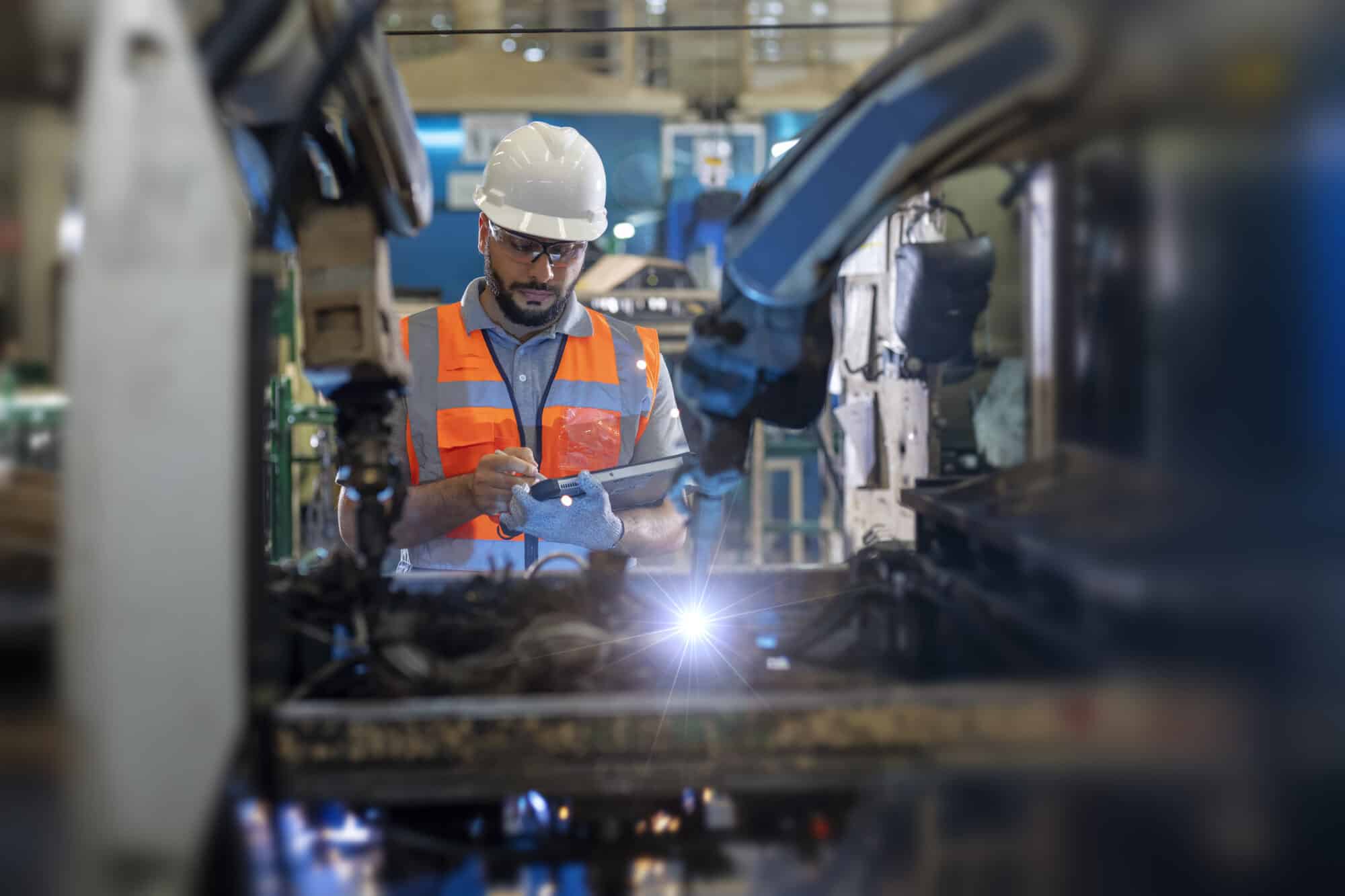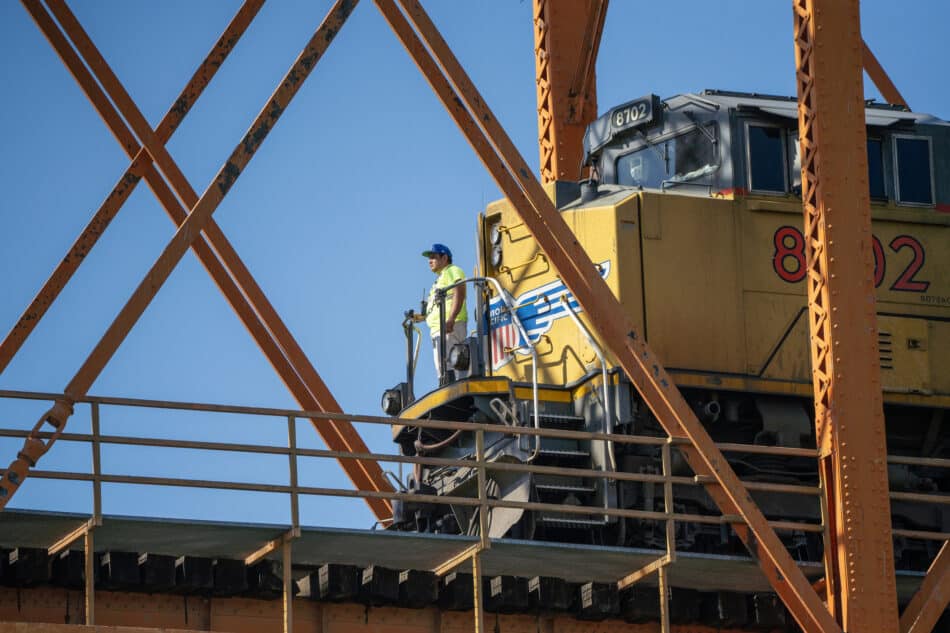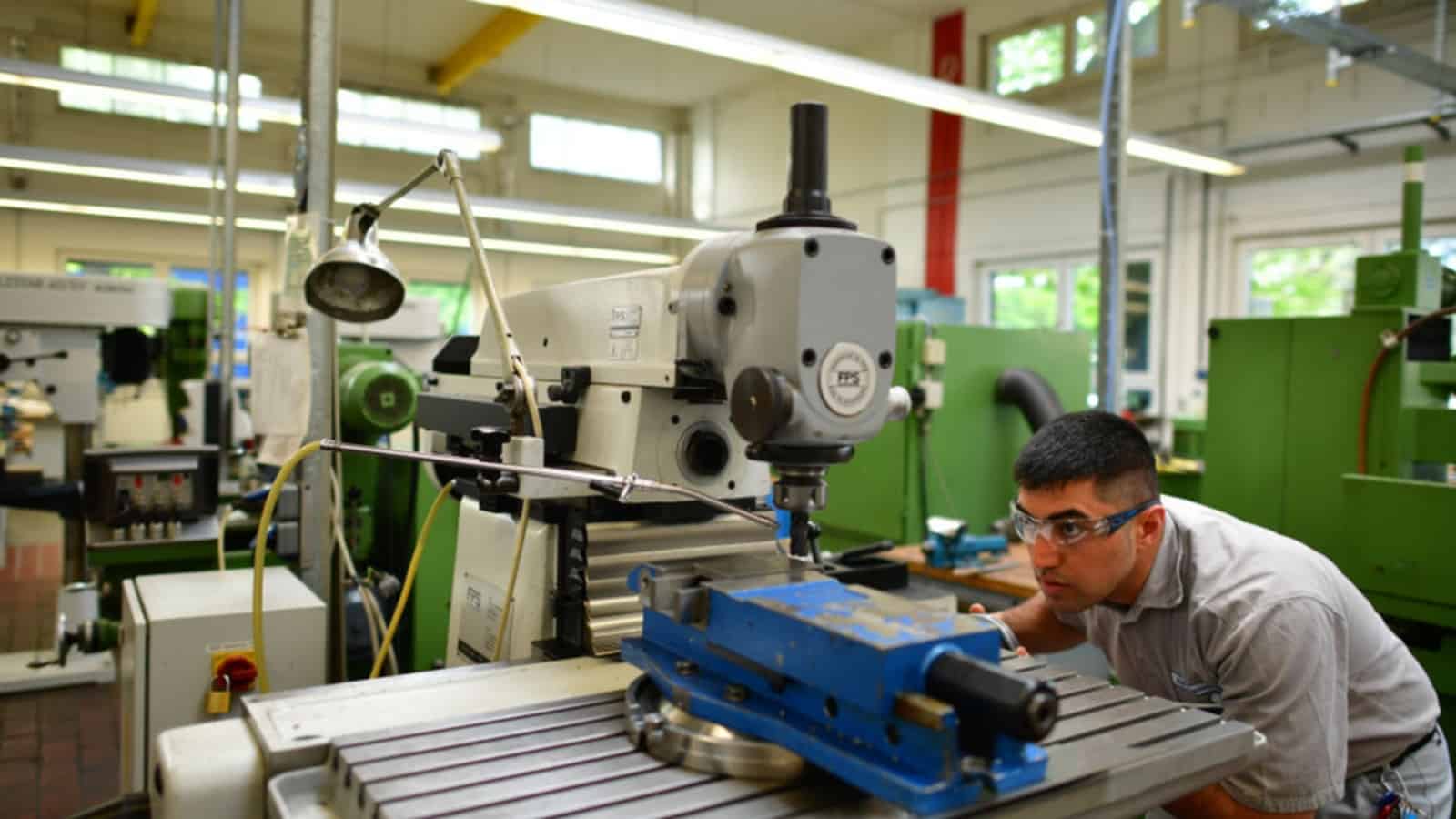Manufacturers Launch Seven-Figure Ad Campaign Opposing Biden Administration’s March-In Proposal
Washington, D.C. – The National Association of Manufacturers has launched a seven-figure television and digital advertising campaign opposing the Biden Administration’s new proposal that would allow the government to march in and seize the rights to groundbreaking innovations developed by manufacturers.
“This radical new proposal is a major threat to manufacturers in America and counter to the president’s goals of growing the sector,” said NAM President and CEO Jay Timmons. “Empowering the government to march in and seize the rights to private-sector patents and technologies threatens American innovation and R&D, putting millions of well-paying manufacturing jobs at risk. Policymakers must protect manufacturers’ intellectual property rights and stop this government overreach.”
To view the latest television ad, click here.
-NAM-
The National Association of Manufacturers is the largest manufacturing association in the United States, representing small and large manufacturers in every industrial sector and in all 50 states. Manufacturing employs nearly 13 million men and women, contributes $2.75 trillion to the U.S. economy annually and accounts for 53% of private-sector research and development. The NAM is the powerful voice of the manufacturing community and the leading advocate for a policy agenda that helps manufacturers compete in the global economy and create jobs across the United States. For more information about the NAM or to follow us on Twitter and Facebook, please visit www.nam.org.
Norway Approves Deep-Sea Mining

Norway voted Tuesday to open its waters to deep-sea mining, the process of harvesting valuable metals from the ocean floor, CNBC reports.
What’s going on: Having approved a government proposal Tuesday to allow exploration in its waters, “Norway is poised to become one of the first countries in the world” to allow deep-sea mining.
- The parliament formally agreed to allow exploration of just more than 108,000 square miles of Arctic seabed between Norway and Greenland.
- Companies will be required to “submit proposals for licenses,” which will be granted on a case-by-case basis.
Why it’s important: “Advocates say removing metals and minerals from the ocean’s seabed is necessary to facilitate a global transition away from fossil fuels,” CNBC reports.
- Many of the critical minerals needed for electric vehicles—including cobalt, copper and nickel—are present in large quantities on the seafloor.
- The move by Norway sets it apart from the United Kingdom and the European Union, “which have pushed for a temporary ban” on deep-sea mining, citing environmental concerns.
- In the U.S. last year, lawmakers introduced legislation calling for a deep-sea mining moratorium pending further research into the method’s environmental impacts, according to Honolulu KHLN.
The NAM says: “Norway’s vote should be a wake-up call to the U.S. that other nations are doing everything possible to secure their own sources of critical minerals. We need to do the same,” said NAM Vice President of Domestic Policy Brandon Farris. “That means first reforming our antiquated permitting system.”
Manufacturer Optimism Still Low

The higher tax burden being levied on manufacturers continues to hit home.
That’s the message from respondents to the NAM’s just-released Q4 2023 Manufacturers’ Outlook Survey.
What’s going on: Historically low levels of optimism persisted among small and medium-sized manufacturers—which compose the majority of the manufacturing sector—in the final quarter of 2023, according to the survey, which was conducted from Nov. 14 to Dec. 1, 2023.
- Among firms with fewer than 50 employees, 65.9% reported feeling positive about their own company’s outlook, while 63.0% of companies with between 50 and 499 employees reported the same.
- Overall, 66.2% of respondents felt either somewhat or very positive about their company’s outlook, edging up slightly from 65.1% in the third quarter. It was the fifth straight reading below the historical average of 74.8%.
Burdensome taxes: Some 89% of respondents said higher taxes on manufacturing activities would make it more difficult for them to hire additional workers, invest in new equipment and/or expand their facilities.
Other top challenges: The majority of respondents—61.1%—cited an unfavorable business climate as a top challenge to their company.
- Hiring and retaining quality employees was high on the list of challenges, too, with 71.4% of manufacturers calling it a primary concern.
A bright spot: Fewer manufacturers now expect a recession in 2024, at just over 34%. In Q3, the figure was 42.2%.
Congressional Inaction on Tax Priorities Holds Small and Medium-Sized Manufacturers’ Optimism Near Pandemic Lows
Eighty-nine percent say higher tax burdens would make it more difficult to hire, invest or expand facilities
Washington, D.C. – The National Association of Manufacturers released its Manufacturers’ Outlook Survey for the fourth quarter of 2023, showing that small companies with fewer than 50 employees and medium-sized firms with between 50 and 499 employees, which make up a vast majority of the sector, continued to have historically lower levels of optimism with 65.9% and 63.0% positivity rates in Q4, respectively.
“It’s clear that Congress’ failure to enact pro-growth tax policies to support innovation and investment before year-end is affecting the manufacturing outlook,” said NAM President and CEO Jay Timmons. “Combined with the ongoing regulatory onslaught from the Biden administration, we’re facing economic headwinds that threaten all of the bipartisan wins achieved in recent years.”
Overall, 66.2% of respondents felt either somewhat or very positive about their company’s outlook, edging up slightly from 65.1% in the third quarter. It was the fifth straight reading below the historical average of 74.8%.
The NAM has been urging Congress to swiftly restore three critical manufacturing tax policies: immediate R&D expensing, a pro-growth interest deductibility standard and full expensing (100% accelerated depreciation). These competitive tax policies are critical to empowering manufacturers to grow their operations, hire more workers, increase wages, expand facilities and invest for the future.
Key Survey Findings:
- Eighty-nine percent of respondents said higher tax burdens on manufacturing activities would make it more difficult to expand their workforce, invest in new equipment or expand facilities.
- Workforce challenges also continue to dominate the sector, with more than 71% of manufacturers citing the inability to attract and retain employees as their top primary challenge.
- A weaker domestic economy and sales for manufactured products (63.7%), an unfavorable business climate (61.1%) and rising health care and insurance costs (59.8%) are also impacting manufacturing optimism.
You can learn more at the NAM’s online tax action center here.
The NAM releases these results to the public each quarter. Further information on the survey is available here.
-NAM-
The National Association of Manufacturers is the largest manufacturing association in the United States, representing small and large manufacturers in every industrial sector and in all 50 states. Manufacturing employs nearly 13 million men and women, contributes $2.75 trillion to the U.S. economy annually and accounts for 53% of private-sector research and development. The NAM is the powerful voice of the manufacturing community and the leading advocate for a policy agenda that helps manufacturers compete in the global economy and create jobs across the United States. For more information about the NAM or to follow us on Twitter and Facebook, please visit www.nam.org.
NAM Redoubles Tax-Priority Push

With tax bill negotiations left unfinished before lawmakers left for the holiday break, the NAM is hitting the ground running in 2024.
- The NAM continues to push for manufacturers’ top three tax priorities: immediate R&D expensing, a pro-growth interest deductibility standard and full expensing for capital investments.
What’s going on: Congress has just a few weeks to reach a government funding deal before a Jan. 19 deadline, “when funding for a range of government agencies is scheduled to lapse,” according to POLITICO. There is a second funding deadline on Feb. 2.
- The NAM has been calling on Congress to prioritize inclusion of the three tax provisions in any measure it passes.
- The NAM recently led a coalition of more than 1,300 businesses and associations in highlighting the urgent need for congressional action.
What’s needed: Congress must reinstate immediate R&D expensing; loosen a strict interest limitation; and return to full expensing (also known as 100% accelerated depreciation) for businesses, the NAM said.
Why it’s important: If these fixes aren’t made, manufacturing R&D, jobs and competitiveness could all suffer.
- Some 78% of manufacturers say the higher tax burden has decreased the funds available to expand their manufacturing activities within the U.S., according to the Q2 2023 NAM Manufacturers’ Outlook Survey.
The last word: “These tax provisions are some of the most critical issues facing manufacturers today,” said NAM Vice President of Domestic Policy Charles Crain.
- “Congress must act immediately to protect manufacturing jobs and maintain America’s competitiveness on the world stage.”
Act now: Visit the NAM’s Tax Action Center to send a message directly to Congress about these critical priorities.
Manufacturers: New Hydrogen Tax Credit Regulations Fail to Incentivize Growth and Investment
Washington, D.C. – National Association of Manufacturers President and CEO Jay Timmons released the following statement in response to new proposed regulations on the Clean Hydrogen Production Tax Credit:
“The hydrogen tax credit has the potential to be the world’s strongest tool to build a hydrogen economy, but the Treasury Department proposal would impose so many hurdles to qualifying for the credit that the Biden administration will be left unable to achieve some of its top economic and environmental goals. Manufacturers are deeply disappointed with today’s announcement.
“Hydrogen is vital to reducing carbon emissions and to energy security efforts. If these regulations are put into place, America will lose out on job-creating investments across the country. To incentivize truly transformative growth in the necessary infrastructure to produce, transport and use hydrogen, the Biden administration should finalize a flexible credit that rejects additional requirements that were not included in the original legislation. And to realize the full potential of Inflation Reduction Act provisions, the CHIPS and Science Act and more, permitting reform must be a top priority in the new year.”
Background: The NAM has been urging the Treasury Department to create a flexible credit that rejects additionality and time matching provisions and provides a mechanism that supports carbon capture. More information on the NAM’s advocacy and the impact of these tax credit provisions can be found here.
-NAM-
The National Association of Manufacturers is the largest manufacturing association in the United States, representing small and large manufacturers in every industrial sector and in all 50 states. Manufacturing employs nearly 13 million men and women, contributes $2.75 trillion to the U.S. economy annually and accounts for 53% of private-sector research and development. The NAM is the powerful voice of the manufacturing community and the leading advocate for a policy agenda that helps manufacturers compete in the global economy and create jobs across the United States. For more information about the NAM or to follow us on Twitter and Facebook, please visit www.nam.org.
NAM Statement on Southern Border Closures
Washington, D.C. – National Association of Manufacturers President and CEO Jay Timmons released the following statement on U.S. Customs and Border Protection’s closure of two critical rail ports in Texas:
“Each day that rail operations at Eagle Pass and El Paso are suspended, more American jobs are put at risk. Snarling supply chains in this way could throw manufacturing production into disarray. Mexico is the United States’ largest trading partner, which means this shutdown threatens to inject serious uncertainty into the economy heading into the New Year.
“Manufacturers support CBP in their mission to protect national security, but stifling trade between the U.S. and Mexico is a direct threat to our economic competitiveness. It is not the solution to immigration challenges, but it does wrongly punish those who are not at fault. The NAM will continue working with the White House, CBP and leaders in the House and Senate to swiftly reopen the rail ports. This is yet another painful consequence of our broken immigration system, and our leaders need to recognize the urgency of fixing that system. Manufacturers are focused on solutions that uphold our laws and strengthen our economy.”
-NAM-
The National Association of Manufacturers is the largest manufacturing association in the United States, representing small and large manufacturers in every industrial sector and in all 50 states. Manufacturing employs nearly 13 million men and women, contributes $2.91 trillion to the U.S. economy annually and accounts for 53% of private-sector research and development. The NAM is the powerful voice of the manufacturing community and the leading advocate for a policy agenda that helps manufacturers compete in the global economy and create jobs across the United States. For more information about the NAM or to follow us on Twitter and Facebook, please visit www.nam.org.
Texas Rail Ports Closures Hit Economy

U.S. Customs and Border Protection has closed two critical rail ports in Texas in an effort to stem a surge of migration, according to CNBC.
What’s going on: Immigration authorities “announced rail operations would be halted at El Paso and Eagle Pass, Texas, beginning Monday in light of the surge of migrants crossing the border.”
- Officials said this temporary suspension of operations will enable the government to redirect personnel to assist Border Patrol with taking migrants into custody.
- “Collectively both railroads operate 24 trains daily at these crossings.”
Why it’s important: More than $200 million in goods, wages and transportation are lost each day the El Paso and Eagle Pass rail lines remain shuttered, according to Union Pacific.
- The closures are affecting international commerce, with mounting impacts on the agricultural, food, automotive, consumer goods and industrial commodity sectors, among others.
- A total of nearly 10,000 rail cars are being held on both sides of the U.S.–Mexico border, according to Union Pacific.
- “According to Bureau of Transportation Statistics data, El Paso and Eagle Pass accounted for $33.95 billion, or 35.8%, of all cross-border rail traffic from November 2022 – October 2023,” CNBC reports.
The backdrop: The developments come the same week Texas Gov. Greg Abbott “signed into law a measure giving state and local police authority to arrest and deport migrants caught crossing the border illegally,” according to The Wall Street Journal (subscription).
What we’re doing: The NAM is in communication with the White House, U.S. Customs and Border Protection and key Senate and House members on the issue, advocating for an immediate solution to the reopening of the rail ports.
- “Mexico is the United States’ largest trading partner, and enabling trade between the two countries is critical for North American economic competitiveness,” said NAM Director of Trade Facilitation Policy Ali Aafedt. “The NAM will continue to advocate for solutions that uphold our laws while also facilitating legitimate trade.”
NAM Goes All Out for Tax Priorities

The NAM is firing on all cylinders to accomplish manufacturers’ top tax priorities: restoring immediate R&D expensing, pro-growth interest deductibility and full expensing.
Time is running out, as Congress must act by early 2024 to allow manufacturers to benefit from these provisions for the 2022 and 2023 tax years. Here’s what the NAM is doing to reach the finish line and why it matters so much to the industry and to the economy as a whole.
What we’re doing: The Executive Committee of the NAM Board of Directors recently sat down with House Speaker Mike Johnson (R-LA) to emphasize the importance and urgency of these measures. The Executive Committee has also raised the issue directly with the White House, and the NAM’s members—90% of which are small and medium-sized firms—have been contacting legislators to urge immediate action since early this year.
- In addition, while pressing the case relentlessly with the White House and congressional leaders himself, NAM President and CEO Jay Timmons has met personally with House and Senate tax negotiators to make manufacturers’ case for these reforms.
- NAM experts have also hosted multiple briefings for key legislators and congressional staffers, featuring manufacturers who explained how the withdrawal of these policies has harmed their businesses.
- Ratcheting up the ante on air and online, the NAM has applied pressure publicly in key districts, running a new ad campaign urging congressional action that has garnered about 80 million impressions so far. It also launched an action center to help manufacturers contact their legislators and spotlight the numerous companies that will be hard hit if pro-growth policies are not reinstated.
Why it matters: All three of these tax provisions are crucial to manufacturers’ ability to innovate, invest in their employees and make the American economy more competitive.
- R&D: The U.S. is one of only two countries (the other being Belgium) that doesn’t permit immediate expensing of R&D costs, a vital incentive for innovation. China, on the other hand, gives companies a “super deduction” for R&D expenses.
- Interest deductibility: A recent tax policy change made it more expensive for manufacturers to make critical purchases for their facilities, by imposing a stricter standard for deducting interest. This is a particularly heavy burden for a capital-intensive industry like manufacturing, amounting to a tax on companies’ investments in their operations and workers.
- Full expensing: This provision allows companies to expense their equipment purchases in the year they are made, supporting manufacturers’ investments in their businesses. But the policy is set to be phased out soon and must be saved, as it is crucial for small and medium-sized manufacturers looking to expand their operations.
The last word: “Manufacturing is the backbone of America, and the NAM is going all-out to make sure Congress acts on these critical priorities,” said NAM Managing Vice President of Policy Chris Netram. “Right now, leaders on Capitol Hill need to hear from manufacturers in their communities with a simple, clear message—act on our critical tax priorities now.”
Take action: Congressional leaders, including Speaker Johnson, have recently pointed out a need to hear from more manufacturers. Lend your voice—check out the resources in the action center to learn more.
NAM Pushes for Sensible Clean Hydrogen Regulations

Manufacturers are working constantly to develop energy approaches that reduce emissions and promote sustainability—and hydrogen energy is an important part of that mix. But upcoming decisions from the U.S. Treasury Department may make it more difficult for manufacturers to achieve their goals.
That’s why the NAM has been advocating for guidance that implements a hydrogen tax credit in a manner that supports manufacturers’ investments in this technology.
The background: Through the Inflation Reduction Act, Congress established this tax credit, called 45V, to incentivize companies to develop, produce and use clean hydrogen.
- “Hydrogen is the Swiss army knife of decarbonization—you can use it for nearly everything you can use natural gas for,” said NAM Vice President of Domestic Policy Brandon Farris. “And this credit can be the most significant tool across the globe to bring down the cost of clean hydrogen.”
The problem: As the U.S. Treasury Department finalizes rules around the use of the tax credit, their decisions may undercut manufacturers’ ability to take full advantage of it. Three provisions in particular are at the center of the NAM’s advocacy.
Additionality: The Treasury Department is considering a policy called “additionality,” which would mean that only hydrogen power created through the use of new renewable energy would be eligible for the credit.
- Meanwhile, clean hydrogen energy created with renewable energy that is already on the grid would not qualify—a real problem as our permitting system can often take half a decade or more to add additional clean power to the grid.
- “We have a lot of renewables on the grid already to spur the hydrogen industry. Using existing clean generation should qualify for the credit,” said Farris.
Time matching: Treasury may also impose a provision called “time matching,” which would mean companies would only receive the tax credit if they produce hydrogen energy at the exact same time that they are producing renewable energy.
- According to Farris, this rule misunderstands the energy production process. A company might only produce solar power for a few hours during the day when the sun is shining, for example, but it could still continue to produce clean hydrogen energy overnight using the grid. Yet under the time matching rule, they would be unable to claim a tax credit for the full amount.
- “This provision would create such tight restrictions that it would chill investment and innovation,” said Farris.
Carbon capture: According to the IRA, clean hydrogen created using natural gas with carbon capture also qualifies for the credit.
- However, the IRA also says taxpayers applying for the credits should have a mechanism to demonstrate that their feedstocks are lower in carbon intensity—yet has not specified what that mechanism will be.
- “Taxpayers applying for the credits should be able to prove that their feedstocks have less carbon,” said Farris. “The law says the less carbon they produce, the higher the credit they should receive. We’re just asking for a mechanism that allows taxpayers to prove it.”
The bottom line: Investments in clean hydrogen energy could be a game-changer for America’s energy future, but only if manufacturers have the opportunity to make them. That’s why the NAM has been urging the Treasury Department to create a flexible credit that rejects the additionality and time matching provisions and provides a mechanism that supports carbon capture.
- “Hydrogen is one of the most promising decarbonization technologies available,” said Farris. “If we can make these changes, we can achieve greater hydrogen production and more significant infrastructure investments and expedite decarbonization efforts across hard-to-abate sectors.”
